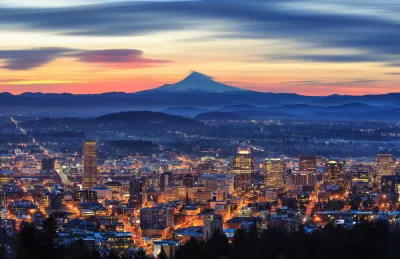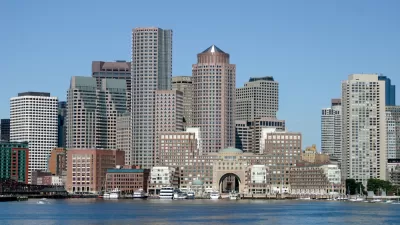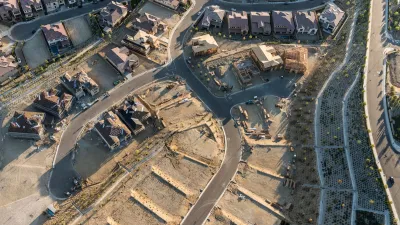A draft plan outlines suggested actions to build resilience, minimize carbon emissions, and protect vulnerable residents from extreme weather events.

The Portland City Council has released a draft 43-step plan to address the city’s climate emergency, declared in 2020. According to an article in Smart Cities Dive by Maria Rachal, the final plan will serve as the city’s climate action plan until 2025.
The plan seeks to target local emissions linked to electricity supply, buildings, transportation, and industry. It also attempts to minimize carbon related to the consumption of food, goods and materials; sequester carbon in trees and green spaces; and build community resilience to the impacts of climate change, particularly among the most vulnerable people.
“The city has two main carbon-reduction targets: cut carbon dioxide emissions 50% or more from 1990 levels by 2030 and achieve net-zero carbon emissions by 2050.” Priority actions listed in the plan include investments in community-owned renewable power generation, energy-efficient retrofits on multifamily buildings, and ‘resilience centers’ built to protect residents during extreme weather, power outages, and other emergencies.
According to Rachal, “The work plan’s steps are not currently binding and have yet to be funded. Over the next three years, city bureaus and departments are to request funding and approvals from the city council.”
FULL STORY: To address its climate emergency, Portland, Oregon, lays out a 43-step plan

Study: Maui’s Plan to Convert Vacation Rentals to Long-Term Housing Could Cause Nearly $1 Billion Economic Loss
The plan would reduce visitor accommodation by 25,% resulting in 1,900 jobs lost.

North Texas Transit Leaders Tout Benefits of TOD for Growing Region
At a summit focused on transit-oriented development, policymakers discussed how North Texas’ expanded light rail system can serve as a tool for economic growth.

Using Old Oil and Gas Wells for Green Energy Storage
Penn State researchers have found that repurposing abandoned oil and gas wells for geothermal-assisted compressed-air energy storage can boost efficiency, reduce environmental risks, and support clean energy and job transitions.

Private Donations Propel Early Restoration of Palisades Playground
Los Angeles has secured over $1.3 million in private funding to restore the Pacific Palisades playground months ahead of schedule, creating a modern, accessible space that supports community healing after recent wildfires.

From Blight to Benefit: Early Results From California’s Equitable Cleanup Program
The Equitable Community Revitalization Grant (ECRG) program is reshaping brownfield redevelopment by prioritizing projects in low-income and environmental justice communities, emphasizing equity, transparency, and community benefits.

Planting Relief: Tackling Las Vegas Heat One Tree at a Time
Nevada Plants, a Las Vegas-based nonprofit, is combating the city’s extreme urban heat by giving away trees to residents in underserved neighborhoods, promoting shade, sustainability, and community health.
Urban Design for Planners 1: Software Tools
This six-course series explores essential urban design concepts using open source software and equips planners with the tools they need to participate fully in the urban design process.
Planning for Universal Design
Learn the tools for implementing Universal Design in planning regulations.
Ascent Environmental
Borough of Carlisle
Institute for Housing and Urban Development Studies (IHS)
City of Grandview
Harvard GSD Executive Education
Toledo-Lucas County Plan Commissions
Salt Lake City
NYU Wagner Graduate School of Public Service





























